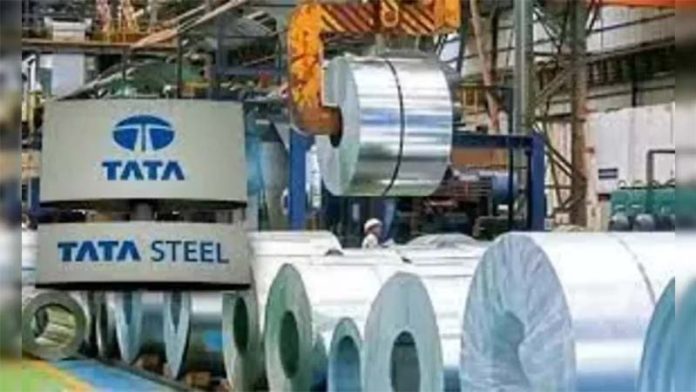KALINGANAGAR (Odisha), Dec 25: Snakes and scorpions crawled the premises of NINL, the land around was covered with bushes and the plant machinery was full of rust, its MD & CEO Sudhir Kumar Mehta said remembering the challenges involved in restarting the sick unit within a set 90-day deadline.
The company was in debt, Mehta said, adding NINL is now doing financially good and has generated a revenue of around Rs 3,000 crore in the April-September or first half of the ongoing fiscal.
On July 4, 2022, Tata Steel completed the acquisition of Odisha-based Neelachal Ispat Nigam Ltd (NINL) — the first state-owned steel company to be divested by the Narendra Modi-led government — through its erstwhile subsidiary Tata Steel Long Products (TSLP) for a consideration of Rs 12,100 crore.
“NINL premises is of 2,500 acre. It had been closed for a long period. When we first entered the unit post the acquisition, there were snakes, scorpions, and lizards crawling in the premises. Bushes up to several feet had grown all over the area and the plant machinery was lying non-functional in rust,” Mehta said, replying to a question on the revival of the sick unit within a 90-day deadline set by the parent Tata Steel.
Accordingly, a detailed plan was chalked out and the entire area was cleaned and made accessible. The offices and buildings were repaired and reconstructed and broadband lines were laid to connect the plant with outside world, he said.
In August, all the employees were paid their entire salary as per the take over agreement, Mehta said.
NINL’s 1 million tonne per annum (MTPA) steel manufacturing unit at Kalinganagar, around 120 km from state capital Bhubaneswar, was closed for over three years on account of various reasons including lack of funds.
Further, technical and mechanical experts from Tata Steel plants in Kalinganagar, Jamshedpur, and Meramandali worked non-stop to restart the NINL blast furnace on October 11, 2022, and the first billet was casted within two weeks on day of Diwali – October 24, he said.
“It was indeed a momentous day for the entire NINL family to have celebrated Diwali in such a way – with a new found purpose and pride. All eyes were wet with emotions to see the plant operating once again,” Mehta recalls.
T V Narendran, CEO & MD, Tata Steel, said: “The team from Tata Steel and the erstwhile employees of NINL have worked together to revive and turnaround a plant that has been shut for almost three years and we are now operating at full capacity. This is a great testament to their passion, commitment, and capability. NINL is poised to grow and form a very important part of Tata Steel group’s long product portfolio.”
Besides, there were numerous other challenges involved in making the plant operational within the targeted time, Tata Steel Vice President (Long Products) Ashish Anupam said.
“We welcomed all about 1,400 employees of NINL, embracing their diverse work approaches. We viewed their strengths and varying skill sets as an opportunity to learn and grow together,” Anupam said.
“While on one hand we worked and reinforced the fundamentals of safety, ethics, and sustainability, we invested heavily in infrastructure and skill upgradation of the employees,” he added.
Even a creche facility has been set up, where children of female employees can be taken care of during their duty hours, Anupam said.
Till date, another Rs 250 crore has been spent as startup capital besides the Rs 12,100 crore which included payment of all the liabilities including debts, vendor payments and employees’ salaries and purchase of equity stake, he said.
On the present financial status of the plant, CFO Sanjib Kumar Ghose said NINL’s revenue from operations in FY23 (following the start of the plant in October 2022 until March 2023) was at around Rs 1,600 crore, and in H1FY24 it is around Rs 3,000 crore.
On the operations, he said the plant is running at its rated capacity to produce finished product billet used in manufacturing Tata Tiscon TMT bars.
The iron ore is sourced from captive Koira mine, 120 km from NINL, which has reserves of 100 MT.
Besides, three captive power plants with a total installed capacity of 62.5 MW provide electricity to run the operations of various units at the steel complex.
Padmin Mahanta, an NINL employee, said, “Earlier the situation was that we had a job but no work and no salary. We had no future. However, now we are getting payment on time and feel secured.”
Satya Prakash Swain (Operative-cum-Senior Technician, Coke Oven, NINL) said the employees were earlier facing hard to feed their families. Paying even school fees of children was a difficult task. After take over by Tata Steel, employees see a bright future for NINL. (PTI)


